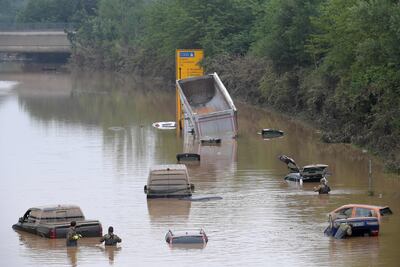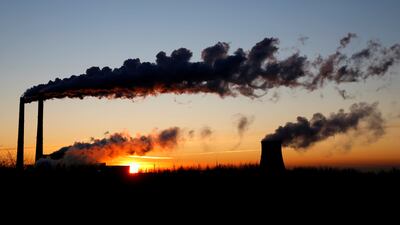UN climate experts are set to deliver stark warnings about how quickly the planet is warming when they publish a landmark report on Monday.
The verdict from the UN Intergovernmental Panel on Climate Change (IPCC) is its first comprehensive update on climate science since 2013.
Scientists will forecast how much more carbon can be pumped into the atmosphere before global climate targets are breached.
That will serve as a guide for countries who are under pressure to agree bold emissions cuts at November’s Cop26 summit in Britain.
Under the Paris Agreement, countries must strive to limit global warming to no more than 2°C or preferably 1.5°C above pre-industrial levels.
But climate change is already fuelling disastrous weather across the globe, with many linking it to last month’s deadly flooding in Western Europe.
Monday’s report will “underscore the urgency for governments to ramp up climate action,” said Kelly Levin, a climate expert at the Bezos Earth Fund.
“The report will cover not only the fact that we are smashing record after record in terms of climate change impacts, but show that the world today is in uncharted territory in terms of sea level rise and ice cover,” she told Reuters.
The so-called carbon budget — the amount of greenhouse gas that can be released before the Paris targets slip out of reach — is a key part of the report.
As host of Cop26, Britain is pushing countries and businesses to adopt plans to cut their net emissions to zero by 2050.
Scientists have been meeting virtually with policymakers since July 26 to finalise the report. Early drafts received more than 80,000 comments from reviewers and governments representatives.

The 2013 report said it was extremely likely that human industry was causing climate change. This year’s report is expected to use even stronger language.
“Obviously it is going to be stronger than what we had in the past because of the growing warming of the planet,” said Corinne Le Quere, a climate scientist at the University of East Anglia.
“That’s going to be one of the main points. It will be discussed very, very carefully, and scrutinised.”
The report will include five hypothetical scenarios for the next century that depend on how far the world succeeds in curbing emissions.
It is expected to discuss the question of attributing extreme weather events to climate change, a politically sensitive issue.
Disasters such as the 2017 hurricane flooding in Texas and the 2019-20 wildfires were directly linked to climate change by scientists.
Many developing countries are particularly vulnerable to climate-induced disasters and want the rich world to accelerate efforts to protect them.
Monday’s report is actually just one part of what will go into the final Sixth Assessment Report, which will be released in 2022.
This will include further chapters on the impacts of climate change on societies and ways of curbing emissions and reining in climate change.
A draft of one of the future reports seen by AFP says that achieving the Paris targets is the only way to protect coastal settlements, cultural heritage sites and ocean ecosystems in the Mediterranean.
The region faces "highly interconnected climate risks" including heatwaves, drought and fires supercharged by rising temperatures, according to the draft report.


